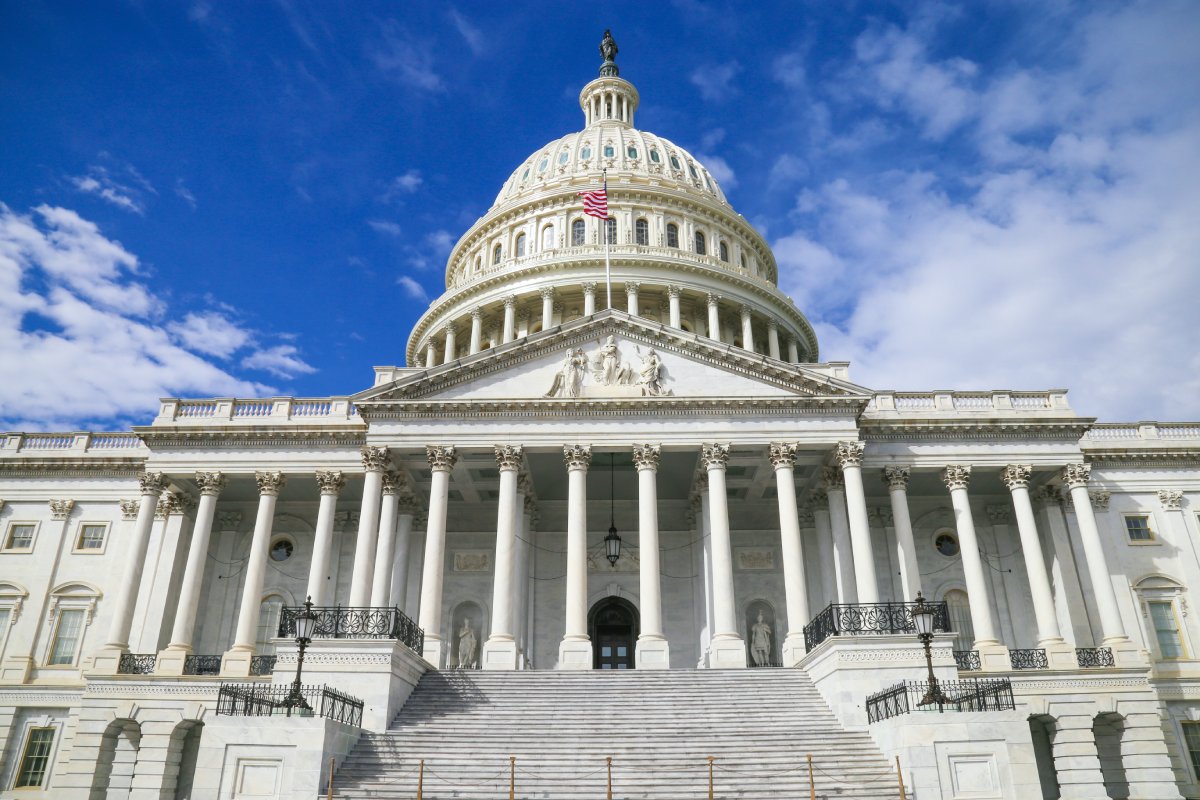Skift Take
Not having a senior-level tourism official has cost the U.S. travel industry billions of dollars and millions of visitors. This new assistant secretary of travel and tourism will be responsible for making up for those many lost opportunities.
The U.S. travel industry will soon have an official voice at the highest levels of federal policymaking under the newly-created assistant secretary of travel and tourism.
The office was created by the Omnibus Travel and Tourism Act, which was included in the massive government funding package passed by Congress on December 23. The U.S. has historically been the only country among the G-20 to not have a cabinet-level tourism office.
It is still unclear when this person will be appointed, especially given that a budget has not been approved that would fund the job.
The idea for the office came out of the 1995 White House Conference on Travel and Tourism, but it was shelved due to the politics of that era. It gained steam again after the pandemic reignited public awareness about the importance of international visitors, why the travel experience matters and the value of the industry, said Geoff Freeman, president and CEO of the U.S. Travel Association.
Drive the Travel Industry Toward Success
Sitting inside the U.S. Department of Commerce, the assistant secretary will be responsible for coordinating across the federal agencies to leverage travel to be an economic driver, according to Freeman. “What there hasn’t been is someone whose mission it is to wake up every day and go to bed every night losing sleep over what needs to be done to drive greater efficiency,” he said.
The assistant secretary will break down agency silos and coordinate action on problems impacting travel, like the return of Chinese tourists or the recent Southwest fiasco. “These issues you are seeing with these massive airline delays will be much more of a coordination of ‘How much of this is going to be under the responsibility of Transportation?’” said Peter van Berkel, chairman of the International Inbound Travel Association and president of Travalco, a tour operator.
The Commerce Department’s U.S. Travel and Tourism Advisory Board, which is made up of two-year term members appointed by the Secretary of Commerce, will be tasked with advising the assistant secretary. On January 13, the commerce secretary revealed a list of 32 appointees who will sit on the board tasked with the new mandate. The U.S. Travel Association approved of the list.
A key part of this person’s job will be to improve U.S. competitiveness, which has been sliding, according said van Berkel. “The market share the U.S. had of international travel is almost half of what it was 25 years ago,” said van Berkel. “The rest of the world has been growing faster than the U.S., especially intra-Asian travel.”
A high-level tourism official is an important step toward promoting national tourism growth. Saudi Arabia, which established an independent tourism ministry in 2020, has made its tourism sector an investment hub and has streamlined its tourist visa procedures, opening up the country to millions of potential visitors. It’s also won over billions of dollars in investment.
Steer Smarter Policymaking at the Federal Level
The industry will have someone who’s job to is to stick up for it at the policymaking table. A key priority will be resolving the visitor visa (B-1 and B-2) interview wait times, which have exploded to over 400 days on average for visitors from Brazil, Mexico, India and other top inbound markets. Millions of people haven’t been able to attend meetings, stay in hotels and visit destinations in 2022.
The delay disaster will cost the industry $12 billion in 2023 and will be the reason international travel won’t reach pre-pandemic levels until 2025, according to U.S. Travel. Marriott CEO Anthony Capuano recently called on the federal government to take action on the issue in an on-stage interview at an annual meeting run by the U.S. Chamber of Commerce.
Meanwhile, the State Department waived in-person interviews for select employment nonimmigrant work visas in H-1B, H-3, L and other categories through 2022 and will continue to do so through December 2023. Visitor visas could have received similar flexibility or receive quicker solutions early on if there was a high-level advocate raising this pressuring issue daily to the State Department.
Obscure but consequential policy decisions that indirectly impact travel could be stopped or modified if there’s an advocate at the table to talk about it. Take the U.S. State Department’s placement of Cuba on the State Sponsors of Terrorism List in January 2021. International travelers from Spain, Germany and other U.S. Waiver countries who’ve visited Cuba are not eligible to use their ESTA visa waiver and would have to apply for a visa to enter the U.S., introducing confusion and an unnecessary burden to the industry, according to van Berkel.
“That’s particularly important to us in Puerto Rico when you think about the travel advisors and travel media that have gone on junkets to Cuba in the last 10 years,” said Discover Puerto Rico CEO Brad Dean, who will serve on U.S. Travel and Tourism Advisory Board. “Now we’re posed with the question of ‘Can we even legally invite them to visit?’ ”
A federal travel expert who has their finger on the pulse of the industry with a high-level seat in the administration would have seen the consequences coming and prevented a situation like this from “rearing its ugly head,” said U.S. Travel’s Freeman.
Industry Still Has to Wait
Unfortunately, the issues plaguing the industry will have to wait to be addressed even longer. A timeline for filing the job has not yet been set, but the President will nominate a candidate, the Senate Commerce committee will hold a hearing on the candidate and then vote on the candidate, according to U.S. Travel.
U.S. Travel is working with lawmakers in the new Congress to appropriate resources for the office.
The Daily Newsletter
Our daily coverage of the global travel industry. Written by editors and analysts from across Skift’s brands.
Have a confidential tip for Skift? Get in touch
Tags: government, international travel, usta, visa waiver, visas, white house
Photo credit: The assistant secretary position will give the travel industry an official voice in federal policymaking at Washington DC.

